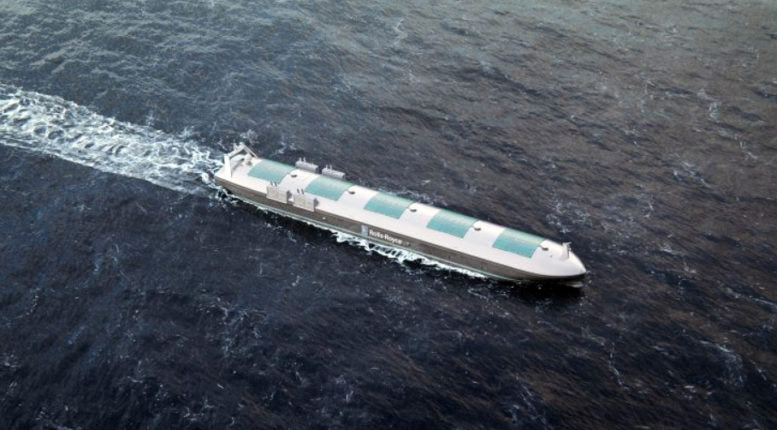On 16-May-2018, the International Maritime Organization (IMO) –responsible for regulating international shipping– began efforts on the regulation of autonomous ships with the 99th session of the Maritime Safety Committee (MSC 99). The MSC began looking at how the safe, secure and environmentally sound operation of Maritime Autonomous Surface Ships (MASS) may be introduced in IMO instruments.
With a myriad of emergent new technologies on the horizon of the maritime industry, such as autonomous vessels, it is vital that regulations are established to ensure the safety, security and efficiency of a new generation of ships. Under this, IMO looked towards how such vessels could be addressed under the instruments of the organization.
It was anticipated that a working group would be established to develop a plan of work and terms of reference for an inter-sessional correspondence or working group, according to IMO.
The IMO, as the global regulatory body, sets the regulations for safe, secure and efficient shipping and for prevention of pollution by ships. In regards to integrating new technologies in shipping, we need to balance the benefits derived from new and advancing technologies against:
- Safety and security concerns;
- Impact on the environment;
- International trade facilitation;
- Potential costs to the industry; and
- Impact on personnel, both on-board and ashore.
The scoping exercise was aimed at looking at the current regulations in relation to MASS. What IMO was looking at was how the rules already adopted could be applied to a ship in various modes of autonomy. IMO was looking at each regulation and seeing whether it would apply to a ship in an autonomous mode; whether it would not apply at all; or if a new rule specific for autonomous ships was needed.
In order to carry out the scoping exercise of existing IMO regulations, and how they would pertain to MASS operations, IMO’s MSC had identified 4 different degrees of autonomy (in non-hierarchical order), recognizing that a ship may operate at different degrees within a single voyage:
- Ship with automated processes and decision support: Seafarers are on board to operate and control shipboard systems and functions. Some operations may be automated.
- Remotely controlled ship with seafarers on board: The ship is controlled and operated from another location, but seafarers are on board.
- Remotely controlled ship without seafarers on board: The ship is controlled and operated from another location. There are no seafarers on board.
- Fully autonomous ship: The operating system of the ship is able to make decisions and determine actions by itself.
For the purpose of the regulatory scoping exercise, a MASS is defined as a ship, which, to a varying degree, can operate independently of human interaction.
The first step was the scoping exercise. The scoping exercise, planned to be completed by 2020, identified current provisions in an agreed list of IMO instruments and assess how they may or may not be applicable to ships with varying degrees of autonomy, and/or whether they may preclude MASS operations.
The second step was an analysis to determine the most appropriate way of addressing MASS operations, accounting for the human element, technology, and operational factors.
The IMO scoping exercise looked at provisions in a number of treaties adopted by IMO over the years to set the rules for safe, secure and environment-friendly shipping. These rules are on:
- Construction, design and equipment in the IMO Safety of Life at Sea (SOLAS) convention;
- Collision regulations (COLREG);
- Rules on Search and Rescue at sea (SAR);
- Training of seafarers and fishers (STCW, STCW-F);
- Loading and stability (Load Lines);
- Tonnage measurement (Tonnage Convention); and
- Special trade passenger ship instruments for transport of large numbers of passengers on certain voyages (SPACE STP, STP).
For now, the fully autonomous vessels are small, while most predictions are that autonomous or semi-autonomous operations would be limited to short voyages, e.g., from one specific port to another, across a short distance.
The MSC recognized at its last session that IMO should take a proactive role on this issue, given the rapid technological developments relating to the operation of ships in various autonomous/automated modes. The scoping exercise was seen as a starting point and was expected to touch on an extensive range of issues, i.e., the human element, safety, security, interactions with ports, pilotage, responses to incidents, and protection of the marine environment.
Commenting on the MSC 99, the Danish Maritime Authority (DMA) said that the global industry needs international regulation to facilitate the use of autonomous ships.
“The first projects with autonomous ships have been launched and we have approved the first test sites in Denmark. Development is rapid in this domain and it is crucial to bring the international regulation up to speed. That is why it is so important that the IMO will now begin to lay the groundwork for such regulation,” said Andreas Nordseth, Director General, DMA.
